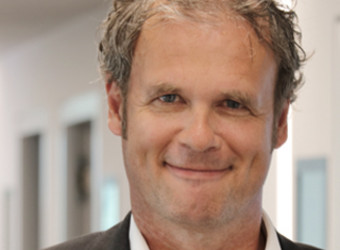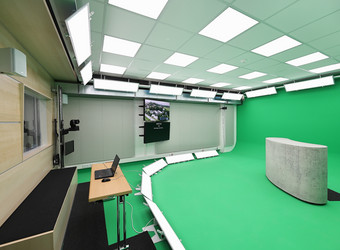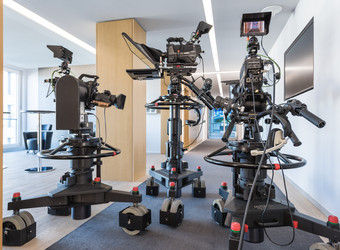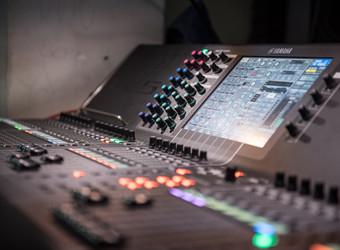Organizing events – a job with anti-boredom guarantee
How the work of a project manager at mbw looks like
Behind every successful event are many hard-working helpers pulling the strings in the background. A project manager assumes responsibility. But what exactly does this job entail? What does it all involve, and what are the advantages and disadvantages of this work? Our editor Janina Singer spoke with mbw project manager Sabrina Bauer about this.
Janina Singer: I know from you, Sabrina, that you're a career changer. So how did you actually get this job?
Sabrina Bauer: A few detours. I originally trained as a wholesale and foreign trade clerk. For a while, I worked at the reception on your cruise ship. After that, I worked at a university and organized events there on the side, such as the semester opening. And then I thought to myself: I want to do more of this!
So, it was actually more of a coincidence?
Yes, I realized that I really enjoy it and that there's more to it than just sitting at a desk processing orders. Organizing events is a great mix between an office job and days spent traveling to events. So you get to get out and do something active. And that's why I'm so glad I'm here today.
I find it exciting that you've been on a cruise ship. I was once, too, but on vacation. You worked there. How does that feel?
You can definitely imagine it being very stressful. You work seven days a week and ten to fourteen hours a day. I sometimes had to deal with complaints at the reception desk, and that's how I learned how to deal with difficult customers. So, once you've done that, you're definitely very stress-resistant.
Free time takes a bit of a back seat, but you still get to see a bit.
Would you say you were able to take anything away from that job that helps you in your work here now?
Absolutely! After that, I think you're prepared for pretty much anything that could come up in any job. You learn to react quickly and also develop a certain understanding of human nature. But of course, you also learn the planning aspect, working with lists that you stick to, and bringing various things together at the end.
Bringing various things together – what do you mean by that in relation to your work here at mbw?
As an event manager, you always have various service providers to coordinate. It starts with sending inquiries and collecting and evaluating offers. On the day of the event, you are the central hub where everything comes together. You take care of things if, for example, a service provider is missing and ensure that everything runs smoothly in the background.
Is there such a thing as a typical workday that you could describe?
It's actually quite varied. If there's no event scheduled, I come into the office as usual in the morning, get a coffee, and catch up on emails. But you never know exactly what's coming up, and I might end up scrapping my entire daily schedule because a speaker somewhere has dropped out. Ideally, the days when events are taking place are the days when you're least stressed, because that's when everything comes together, and you see at the end what you've prepared.
Does it feel good when you arrive at the event and see that everything is running smoothly, everything is working, everyone is there?
That's the crowning glory of every event! First, of course, you really have to work hard and make sure everything runs smoothly. Then when the event is over and the client says everything went smoothly... yes, I'm always happy about that. That's the crowning glory.
What happens if it doesn't work out? How do you react then?
Then you improvise! Above all, you have to stay calm in the moment and see which direction you need to pull. Who could know? Where do you need to start? It helps to keep a cool head. Of course, a routine develops over time. And in the end, it usually works out.
What was the most bizarre or difficult situation you can remember, the biggest mishap that occurred?
We once had an event where there was no sound engineer and the speakers' presentations were missing. A cooperation partner should have taken care of both of these things. I think that was the most energetic half hour I've had since I've been here. I briefly considered learning sound engineering myself, but I wouldn't have had time for it because I was so busy with so many other things. Then a speaker came along who didn't have his presentation on a USB drive but wanted to connect his laptop. Another speaker failed, and a replacement speaker came in. But everything worked out in the end. Things like that teach you to always ask for more information! And you're proud afterwards when it all works out.
How did you solve it? Who did the sound engineering?
There was a sound engineer on-site at the venue who was familiar with the building's technical systems and happened to have time to step in. You have to be lucky for that, too. The alternative would have been to have someone from our technical partner come in. However, they would have had to travel from farther away. We definitely explored all options to make it possible.
So it doesn't seem to get boring for you?
No, it never gets boring for me, and that's a good thing.
What are the advantages and disadvantages of the job? How would you summarize it?
A disadvantage could be that you sometimes have to work weekends or longer working days if there's an evening event. The advantage is that it's definitely varied and you get to see something different. Personally, I enjoy going out every now and then. For me, it's a really good mix of relaxed days in the office, maybe even working from home, and days with more action.
What would you say is essential for this job? Especially in terms of qualities to be suited to the job and to enjoy it.
You should definitely be open to all sorts of things. Never lose interest and keep asking, asking, asking. The more you know, the more you can manage in the background. A certain basic interest in technology never hurts either. Flexibility is definitely important. And, of course, the willingness to work outside of core hours. Apart from that, stress resistance is essential. And you shouldn't be put off if something goes wrong.
As we've already heard, you're a career changer. If you were to start over again, would you do it the same way, or would you say it would actually be better to actually learn the trade?
I would do it the same way again. I'm more than happy in this job today. But maybe things would have turned out completely differently if I'd learned it from the beginning. Maybe I would have been put off by the working hours. You never know beforehand.
And I think all the positions I've had ultimately led to where I am today.
What advice do you have for young people who are also considering pursuing this career?
While you're still in school, you should do as many internships as possible. Because that's the best way to just get a taste of things, watch, and develop a feel for what you might like. I'm a big fan of doing an apprenticeship first and then building your studies around that. But if you already know that you definitely want to go in that direction, you can of course also go straight to university. But internships are very important!
Exactly, we have interns here at MBW every now and then, and they're not just allowed to make coffee.
Exactly, I even always forbid making coffee because I say there are much more exciting things to do. But of course, coffee is important too!
































